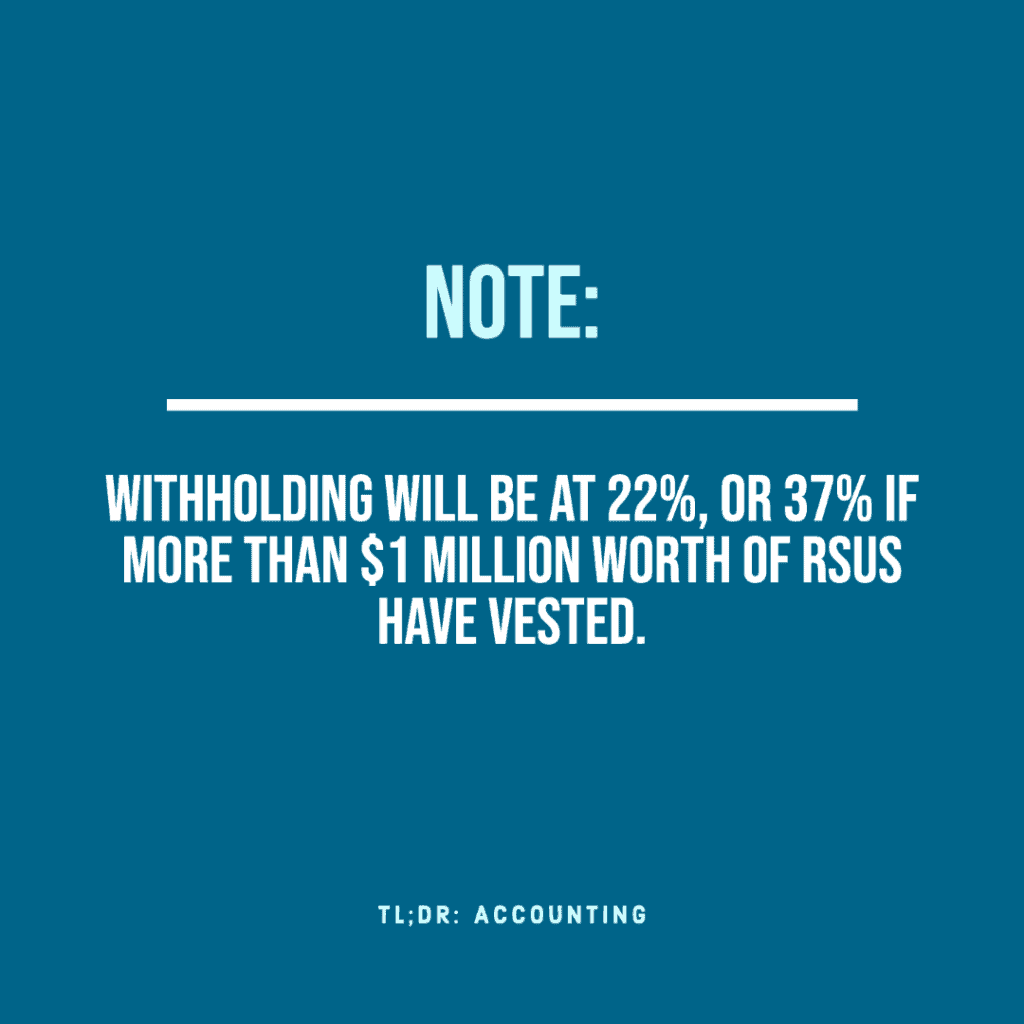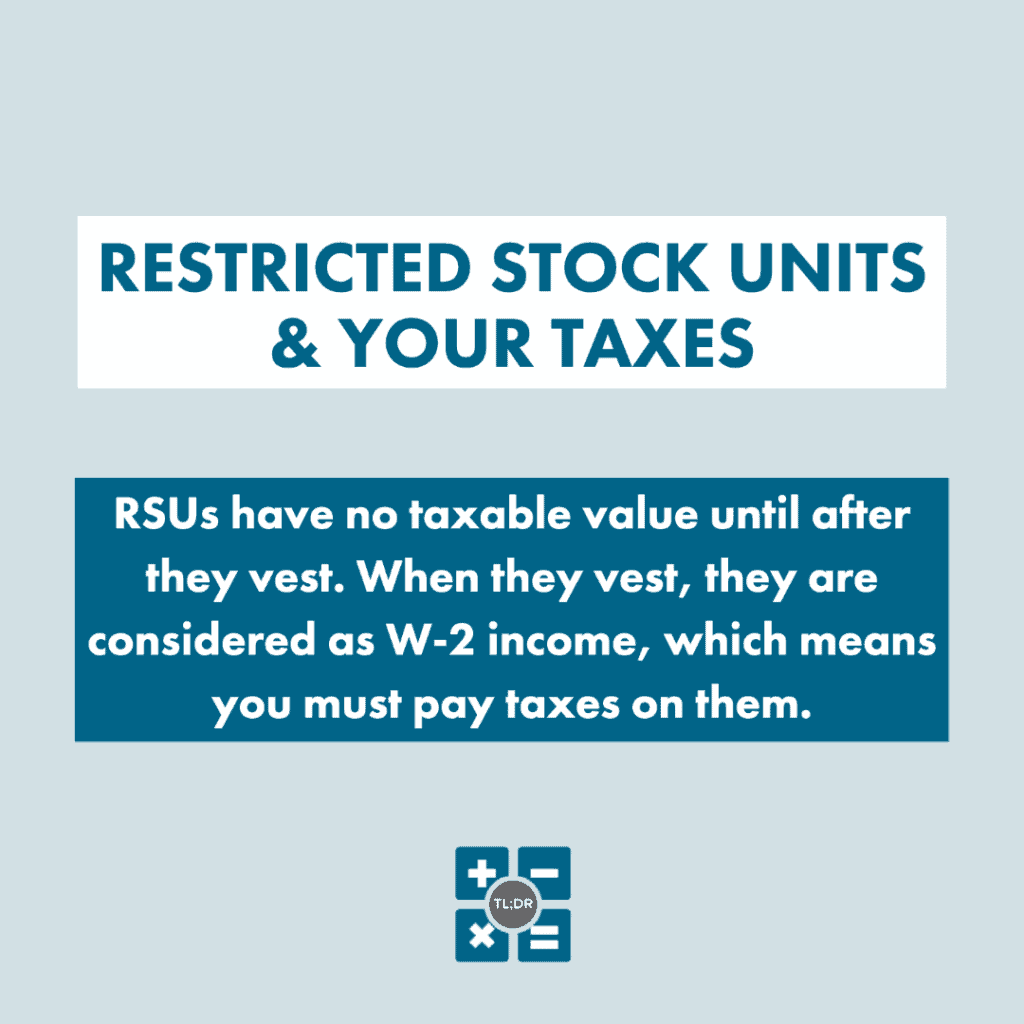In 1999, Bonnie Brown saw an ad for an in-house masseuse position at a 40-employee startup business in Silicon Valley. It was a part-time job that paid $450 per week but also offered stock options. She figured these stock options might be worthless, but nevertheless accepted the job.
It turns out that this tech startup was called Google, and Bonnie Brown became a multimillionaire 5 years later.
Does your company compensate you with RSUs (Restricted Stock Units)? If so, you have some decisions to make. Just don’t hold your breath about becoming a multimillionaire based on options alone — be happy if it happens, when it happens!
What Is a Restricted Stock Unit?
Compensating employees with ownership in the business is not a new idea, but these days the concept is largely associated with tech firms, especially startups. The difference between receiving stock as compensation and earning RSUs is the restricted part. When you earn RSUs, you are unable to make use of them until you satisfy certain requirements (this is called vesting). Your RSUs might vest after a certain number of years of continuous employment at your company, or they may be subject to certain performance requirements.
RSUs have no taxable value until after they vest. When they vest, they are considered as W-2 income, which means you must pay taxes on them.
“But what if I’m not ready to pay taxes on them when I earn them?” you might ask. RSUs can be worth a lot of money! Well, this is where “sell-to-cover” withholding comes into play.
Restricted Stock Unit Taxes: “Sell-to-Cover” Withholding and Percentages
Because RSU vesting can trigger huge tax liabilities, it only makes sense for your employer to withhold a portion of the RSU value upon vesting in order to reduce a “nasty surprise” tax burden later on. Even if you want to hold onto your stock when it vests, the fact that you have to pay tax on stock whether or not you sell it means that you might have to sell some RSUs just to cover taxes!
If your RSUs are worth $1 million or less upon vesting, your sell-to-cover withholding percentage is 22%. In this case, you’re probably going to take a hit tax-wise. Make sure you’re paying quarterly estimated taxes and make sure you save enough of that RSU money to pay any taxes you might owe!
On the other hand, if your RSUs are worth over $1 million, the withholding percentage for sell-to-cover is 37%. This quite-high percentage is equal to the top tax bracket currently in place. Depending on your tax situation, this might be higher than your marginal tax rate, but you can’t count on that.
Restricted Stock Unit Taxes: Looking at Your W-2

At this point you might be wondering, “How do I know how much I earned in RSUs last year, and how much money was withheld for sell-to-cover?” Check out our handy list of good-to-know details:
- RSU income is reported in Box 14 “Other” on your W-2. It will likely list the total dollar amount followed by the acronym “RSU.”
- Any sell-to-cover withholdings will be combined with your regular withholdings in boxes 2, 4, and 6.
- If you pay state income tax, you will also see state income details in Box 15 of your W-2 at the very bottom. (Washington State does not have a state income tax.)
If you have more questions about your RSUs or any other topic regarding your employee compensation package, contact your company’s HR or payroll office. If you need help planning your estimated tax payments because of RSU vesting (or for any other reason), you can contact us for a personalized review of your finances!
TL;DR: RSUs (Restricted Stock Units) are an option for businesses, often in the tech industry, to compensate employees in addition to their regular pay. These stock units are called restricted because certain circumstances have to be met for them to “vest” and have value. The thing is, once RSUs vest, they immediately become taxable income. Whether or not you sell all your RSUs, you may have to sell a portion of them to cover taxes on the RSUs that vested. Withholding will be at 22%, or 37% if more than $1 million worth of RSUs have vested. The income you earn when RSUs vest can be found in Box 14 of your W-2.







